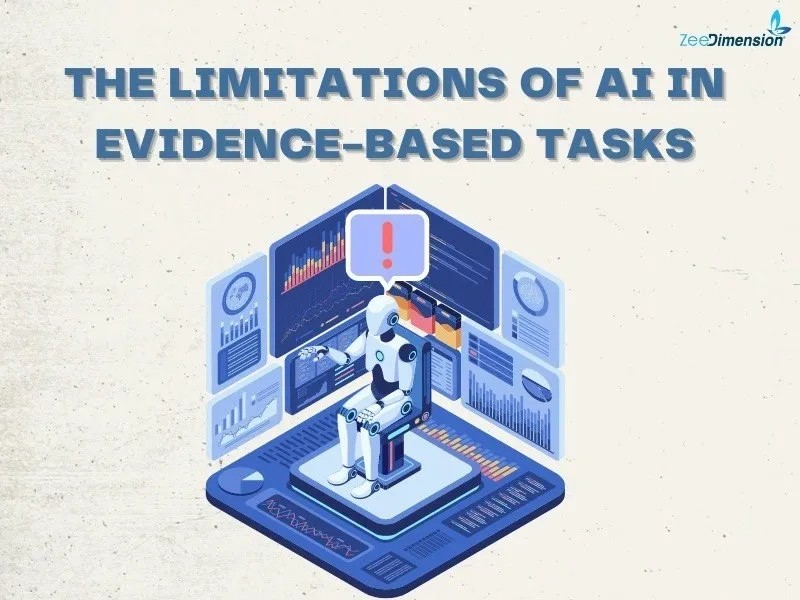
AI excels in simulation and prediction, but is it reliable for evidence-based decision-making? Let’s explore where AI falls short!
AI’s Strengths: Simulation and Prediction
AI is great at processing large datasets, identifying patterns, and predicting outcomes in areas like finance, healthcare, and marketing.
But what about tasks that require evidence-based analysis?
Key Weakness
1. Lack of Understanding and Context
AI operates on data patterns but lacks the human ability to understand context.
Evidence-based tasks often require a deep understanding of historical, cultural, or ethical factors. AI isn’t equipped for that!
2. Dependence on Data Quality
AI relies heavily on data quality. Incomplete, biased, or unrepresentative data can lead to inaccurate or misleading results.
For evidence-based decisions, where accuracy is crucial, this is a significant limitation.
3. No Causal Explanations
AI can predict outcomes but often can’t explain the “why” behind them.
In fields like medicine or law, understanding causality is crucial. AI’s “black box” nature can hinder evidence-based decision-making.
4. Struggles with Novel Situations
AI excels with historical data but struggles with new or unprecedented situations.
Evidence-based tasks often involve unique cases where human reasoning and creativity are essential.
5. Ethical and Bias Concerns
AI models can unintentionally perpetuate biases present in training data.
For evidence-based decisions requiring impartiality and fairness, this poses significant ethical challenges.
6. Lack of Accountability
Unlike humans, AI cannot be held accountable for its predictions or decisions.
In evidence-based fields, where accountability is vital, this lack of responsibility is a major drawback.
Case Study Examples
– Healthcare:AI may predict a disease but miss context like patient history. – Legal:AI might suggest case outcomes but can’t handle evolving legal standards. – Auditing: AI spots patterns but can’t substantiate claims without context.
Conclusion
The Need for Human-AI Collaboration
AI is powerful, but not a replacement for human judgment in evidence-based tasks.
Combining AI’s strengths with human expertise ensures more informed, ethical, and responsible decisions.







